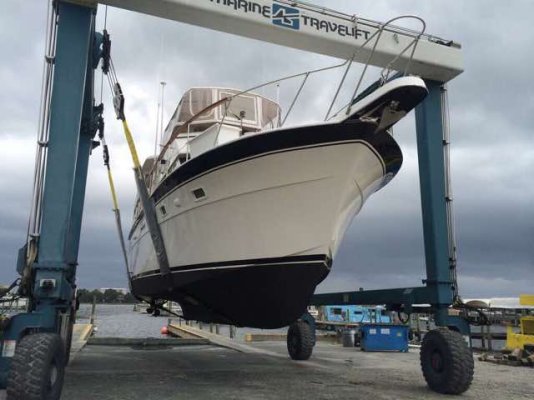You're asking for some things there that will push you toward the upper end of your size range, if not above.
......
As to semi planing and speed without sacrificing much low end economy is a matter of defining much. You can still get good economy but you're not going to get the levels of economy that some trawler owners brag about.
.......
BandB,
Good points, and I'm sure there will be sacrifices, and realize if we got everything we want, it would push toward a bigger boat.
As for speed.... I just need to do more research and get info. I'm sure many of us wouldn't mind getting half the economy to double the speed at times. But if it's 10 times more costly to go 10% faster, no one would do it... so I just need to find out what these boats really do.
Just guessing, to do this trip in my Sundancer, the fuel bill would be in the range of $10K, getting about 1.7nmpg. That's not horribly bad, but I'm sure there's a ton of much more comfortable boats out there that get much better mileage, and are not "that" much slower (as a good portion would be a slow speed anyway). Besides, the Sundancer is really not a good open water boat.
From a money standpoint, if I bought a boat just for the loop, sold it at the end and took a 15 to 20% hit on the sale, saved some fuel, and had way more comfort, it would be a bargain. And who know, might just keep it.
Money is always an issue, but not a huge concern for this trip. I'm not setting out to see how cheap it can be but am setting out to see how much fun and satisfying it will be. I'm sure it's a trip to remember.
Comfort IS a big consideration. If the admiral is not comfortable, I'll be uncomfortable.
We have decided that the "must haves" now include:
Two staterooms (one would be storage most of the time.
One head/shower is fine.
Obviously Gen and AC.
Washer and dryer of some reasonable size.
An open area in the back, where we can enjoy the outdoors, but preferably with a hard top for a dingy on top with a crane.
Dingy
Swim platform.
Bow thruster or stern thruster or both.

 if you do not have it and need it
if you do not have it and need it 

